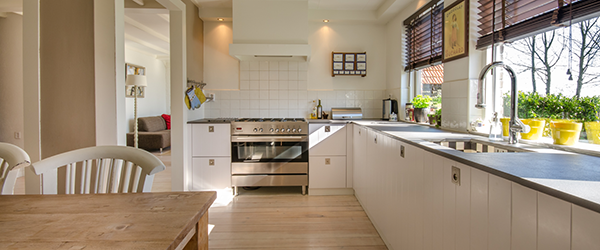15 Apr April 2018
Welcome to our April newsletter

Can you believe it’s already May? If you’ve been thinking about a 2018 property purchase, here’s why now is a great time to go for it. Firstly, the cash rate remains unchanged at a record low level. Secondly, home values and auction clearance rates are falling in many markets around the country, so conditions look like they’re starting to turn in favour of buyers. And last, but not least – there’s plenty of housing stock to choose from in the busy autumn selling season, so why not go for it?
Interest Rate News
This month, the Reserve Bank of Australia decided to leave the cash rate unchanged at 1.5 per cent, and it’s widely believed any change to the cash rate is still some way off. Meanwhile, some banks have dropped interest rates on investor and interest-only mortgages in recent months. If you have an investment property, it’s worth checking in with us to see whether your investment loan is right for you. We may even be able to find you a more competitive rate.
Property Market News
Across the combined capital cities, home dwelling values fell by -0.31 per cent over the month ending April 30. Hobart was the outstanding performer, with home values rising 1.16 per cent. Canberra was next with a rise of 0.64 per cent, followed by Darwin at 0.58 per cent and Adelaide at 0.06 per cent. Perth and Brisbane experienced marginal home value reductions of less than .05 per cent, whilst Sydney home values fell 0.36 per cent and Melbourne saw the biggest monthly home value reduction of 0.45 per cent.
Auction activity increased across the combined capital cities in the week ending Sunday April 29, however clearance rates around the nation are showing significant declines. In Victoria, there were 1,419 auctions with a 66 per cent clearance rate. NSW held 975 auctions, but only 58 per cent of stock sold. In South Australia there was a 62 per cent clearance rate on 134 properties, and in Canberra, 92 properties went to auction and 64 per cent sold.
Clearance rates were even lower in other states. In Queensland, 305 properties went to auction and 42 per cent sold, whilst Western Australia saw 44 auctions take place, returning a clearance rate of only 38 per cent, and Tasmania had the lowest clearance rate of around 33 percent, but only eight properties went to auction.
Winter is coming!
It can be a dreary time of year in the property market. So why not take advantage of the busy autumn selling season while it lasts? With auction clearance rates generally softening, you may be able to negotiate a fantastic deal for a new home or investment property. Whether you’re a first-home buyer, next home buyer or investor, your mortgage broker can provide expert advice about all your finance needs. Please get in touch to arrange pre-approval on a loan for your next property purchase today!
6 Ways to renovate to increase your home’s selling price

When renovating for profit, the golden rule is minimal expenditure, maximum return. The key is to focus on renovations that will maximise your property’s value, whilst not costing you the earth. Here are 6 smart renovation ideas that will resonate with prospective buyers and help you get great returns when you sell. Remember, if you need assistance with financing your renovations, your mortgage broker can offer you competitive loan choices! They will do all the leg-work for you, so you can focus on transforming your property into something extraordinary.
Curb Appeal
First impressions are everything. When it comes to renovating with resale in mind, you want your home to have that ‘wow’ factor as soon as buyers see it. Consider the view from the street – the front façade, fence, garden, windows, roof and driveway. Spruce them up and make them work together to add charm.
Kitchen
Renovating the kitchen is one of the most effective ways to add value to a property. Many buyers like the idea of having the kitchen done for them, so that they can just move in and enjoy it. If you have a larger budget, you might like to opt for a custom-made kitchen that’s made-to-order to suit the home. Alternatively, there are some great modular kitchens available at reasonable prices. New cabinetry, appliances, benchtops, and a striking splashback will do wonders for your home’s sale price.
Bathroom
Renovating bathrooms with modern fixtures and fittings can also drive up the value of a property. If your bathroom is passable but just needs some love, you could simply respray the tiles, fixtures and fittings, rather than redoing the whole lot. Another idea is to redo the tiling yourself, and update only the fixtures that need replacing, whether it’s the bathtub and vanity, or basins and shower screen. If you only have one bathroom, consider adding extra bathrooms to your property, as this can boost a property’s value.
Flooring
Installing new flooring can make a big difference to the appeal of your home, and therefore its value. There are plenty of great budget flooring options out there that look attractive. Vinyl planks and laminate flooring for example, are both popular, durable, budget-friendly products that you can install yourself. When choosing your flooring, remember your target audience. If your market is a family or property investor, wall-to-wall carpets may not be the best option. Remember the golden rule, minimal expenditure, maximum return.
Paint
It’s amazing what a fresh coat of paint can do to transform a property! A 1960’s home with retro mustard wallpaper can look instantly modernised and refreshed with a new lick of paint. Best of all, a paint job can be relatively inexpensive, particularly if you do the painting yourself. If you want to give your property a lift and appeal to the majority of buyers, be sure to go for a neutral colour scheme that won’t date quickly.
Additional bedrooms
If the space allows, adding more bedrooms to your property is another way to increase its value. While you may be up for a sizeable outlay in the tens of thousands, the financial rewards come sale time can also be big (in some cases, several hundreds of thousands). Remember, properties are typically valued based on land size and the number of bedrooms – the first, you can’t change, but the second you can. If you need help with finance for major structural renovations, speak to us about your options.
If you’re looking to renovate to boost your property’s value, remember – careful budgeting and planning is key. Your mortgage broker is here to help with that, as well as to help you work out the right option to finance your renovations. You may be able to refinance your home loan to access equity to complete the project. Alternatively, your broker can walk you through the other finance options available to you, depending on your financial circumstances and goals. Please get in touch and we’ll help you get the transformation under way!
This article provides general information and has been prepared without taking into account your objectives, financial situation or needs. We recommend that you consider whether it is appropriate for your circumstances. Your full financial situation will need to be reviewed prior to acceptance of any offer or loan product. It does not constitute legal, tax or financial advice and you should always seek professional advice in relation to your individual circumstances. All loan applications are subject to lenders’ terms and conditions, and eligibility criteria. Lender fees and charges will apply.
How to bid at an auction by phone

Bidding at an auction by phone is becoming more popular. You may have noticed these bidders – mysteriously whispering into their phones and then bellowing out bids with unwavering confidence. Whilst some of these people are buyer’s agents, others are just experienced property buyers bidding on behalf of friends or family.
Why bid at an auction by telephone?
There are many reasons why you may prefer to bid at an auction by phone, rather than attending in person. These may include:
Geography: You may want to bid on a property that is rural or located interstate. Or you may want to bid at several auctions being held on the same day and can’t attend them all in person. If that’s the case, you may be better off organising someone to be there for you and work with them over the phone.
Nerves or inexperience with bidding: A lot of people feel nervous about bidding for themselves – it’s a normal reaction. It’s also normal to feel intimidated by other bidders, particularly if you’ve come face-to-face with some competitive types! Bidding over the phone can help you remain objective by keeping the excitement of the situation at arm’s length.
Avoid overspending: It’s easy to get carried away by the excitement at an auction and bid above your budget. If it’s a property you really want, it’s hard to stop adding another thousand when the object of your desires is only a few meters away – that’s why they often hold auctions at the property’s front door! It’s easier to stay in control if you place your bids remotely, because you can give your bidder an absolute spending limit.
What are the pros and cons?
Auctions can be loud and stressful, and bidding by phone can take a lot of the anxiety out of the experience. When the auctioneer starts spruiking and the crowd gathers, you won’t be distracted as you try to sort the sticky-beaks from the serious bidders. You’re more likely to remain calm on the other end of the phone, and go about things in a business-like fashion.
By the same token, not being able to see the other bidders can be a disadvantage, as you won’t be able to read their body language and gauge the competition. That’s where communication with your stand-in is essential! You may even like to use Skype, FaceTime or a similar app, so that you can “see” the competition during the auction.
How do you go about organising it?
The first step is to check that phone bids are accepted by the auctioneer, agent and vendor. If they are, you’ll most likely have to register and fill out a form beforehand nominating a stand-in to bid on your behalf. Then it’s simply a matter to nominating someone to bid for you. You may also like to organise your solicitor to be available in the event that yours is the winning bid.
What happens if the property is passed in and you want to negotiate?
If the bids do not meet the seller’s reserve, the property may be passed in or withdrawn from auction. If you are the highest bidder, you’ll have first dibs on negotiating with the seller. Your agent or contact on the other end can do this for you whilst you’re still on the phone, or can pass over the phone to the auctioneer or seller so you can speak with them directly.
How do you pay the deposit and sign on the dotted line if you succeed?
When you fill out the paperwork to nominate your stand-in, you can specify how you’ll pay the deposit on the day if successful (usually 10 per cent of the purchase price). You can authorise the agent or auctioneer to complete a signed blank check, provide a signed bank cheque for 10 per cent of your maximum bid, authorise the stand-in to pay the deposit on your behalf, or transfer the money into the agent’s trust account.
In terms of the sale contract, you can nominate the authorised bidder or auctioneer to sign on your behalf. Alternatively, you may like to be present and go along to sign once the phone bidding is over, or tee up your solicitor to represent you beforehand.
Bidding at auction by phone could be a less stressful way of securing your dream home or investment property. It can also be more convenient if you’re not close by. Remember, organising pre-approval on a loan before the auction is vital, so please get in touch with your mortgage broker before you plan to buy. With any luck, you’ll hear those magical words on the big day – “sold to the bidder on the phone!”
This article provides general information and has been prepared without taking into account your objectives, financial situation or needs. We recommend that you consider whether it is appropriate for your circumstances. Your full financial situation will need to be reviewed prior to acceptance of any offer or loan product. It does not constitute legal, tax or financial advice and you should always seek professional advice in relation to your individual circumstances. All loan applications are subject to lenders’ terms and conditions, and eligibility criteria. Lender fees and charges will apply.
Property Investment Jargon Explained

Are you new to the world of property investing? Does the jargon leave you feeling confused? Well, fear not, investor-to-be! We’ve put together a comprehensive list explaining the most difficult terminology. By the end of this article, you’ll sound just like a seasoned property investor when conversing with your friends at the dinner table, and maybe even feel inspired to buy an investment property of your own!
Negative gearing
Put simply, negative gearing is when the costs of owning a property – like the interest repayments, rates and maintenance costs – exceed the income you receive. Say you earn $25,000 in rental income and your expenses add up to $35,000, the property would be negatively geared to the tune of $10,000. This could potentially provide a significant tax break, which is why negative gearing is a popular strategy with property investors.
Positive gearing
As you may have guessed, positive gearing is the opposite of negative gearing. It’s when the income you make on a property is greater than the expenses. This could provide you with an income, however it should be noted that you will most likely be required to pay tax on this income. Another term for this is ‘cash-flow positive’.
Depreciation
‘Depreciation’ is a term used to describe the decrease in value of an asset over time. With a property investment, it includes items like stoves, carpets and hot water heaters. Each of these items depreciates a little bit each year according to a Depreciation Schedule you have drawn up by a Quantity Surveyor, and these amounts may potentially be claimed back as a tax deduction.
Capital gains
A capital gain is the amount by which the property increases in value, relative to what you paid for it. A capital gain is usually realised when you sell the property. However, if your property goes up in value, you can often borrow against the capital gain (also known as accessing your equity) by asking a lender to value the property and refinance your loan.
Capital Gains Tax
Capital Gains Tax is the tax you pay when you sell an investment property that has gone up in value since you purchased it. You need to report capital gains (and losses) in your income tax return.
Equity
Equity is the proportion of the property that you own. So, if the property’s worth $600,000 and you owe the bank $100,000, you have $500,000 in equity. Equity can be used in a variety of ways, for example you can potentially borrow against it to buy additional properties or fund renovations.
Rental yield
The rental yield refers to the money your tenants pay you. Rental yield is calculated as a percentage of the property’s value. You can calculate the gross rental yield by multiplying the weekly rent by 52 weeks, divided by the property’s value.
LVR
LVR stands for loan-to-value ratio. Essentially, it’s the percentage of money you borrow for a loan, compared to the value of the property. Lenders generally like to keep the LVR within 80% – so you would need a 20% deposit. If you don’t have a 20% deposit, you will be subject to lenders’ mortgage insurance which protects the lender if you default on the loan. This can be expensive.
We hope you’re feeling more comfortable with the lingo now! Your mortgage broker is here to advise you how to structure your finance according to your property investment strategy, and find you the right investment loan for your specific financial circumstances and goals. So, if you’re thinking about making a property investment, please call today!


